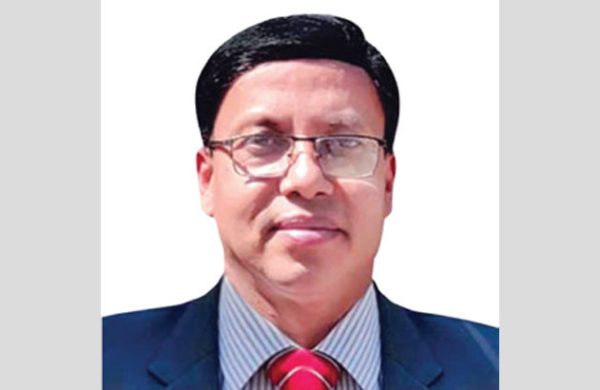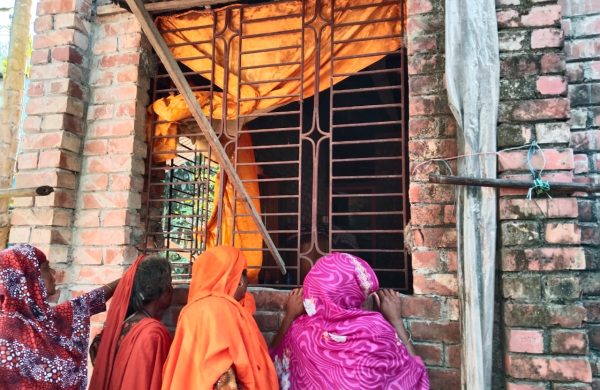Farmers’ Strong Market Ties Can Guarantee Fair Price
- Update Time : Thursday, August 14, 2025

—Dr M Jamal Uddin—
Marginal and small farmers in Bangladesh are often deprived of fair prices for their products. They have very limited direct access to large markets in the existing agricultural system. If the quantity of a farmer’s produce is small and the local market is nearby, he usually prefers to sell his products directly to consumers. However, most farmers sell their products to local traders, hawkers, and wholesalers. The number of local traders is small, but they operate in an organised manner. On the other hand, the farmers are not organised. As a result, they often fail negotiate the price of their products with the traders and cannot sell their products at the desired price.
Even if a farmer takes his products to a large market alone, the fair price he will get there is not guaranteed. One of the reasons for this is that he does not have a prior connection with that market, or he does not have the skills or interest to study that market. Because of this, farmers are often deprived of fair prices. So it is essential that farmers of all categories make their own efforts to increase connectivity with larger markets.
Wholesalers and retailers reap 80 per cent of the profits from agricultural products. This information has recently emerged in a news report in a national daily. The issue is also evident in the analysis of data from a recent report by the Food Planning and Monitoring Unit (FPMU) of the Ministry of Food. The report, titled ‘Monitoring Report 2021: Bangladesh Second Country Investment Plan (CIP) Nutrition Sensitive Food System (CIP2 2016–2020)’, shows the price and profit distribution at different stages of the marketing process of three agricultural products—brinjal, potato, and tomato. It is seen that farmers receive less than one-fifth of the total profit distribution in the production and marketing process of these vegetables. The rest of the profits are reaped by middlemen, wholesalers, and retailers.
When farmers cannot access markets directly, middlemen dominate the supply chain, often capturing a large share of the profits. The longer the supply chain, the more products change hands, which increases the price of the product. As a result, both producers and consumers suffer. Hence, there is a need to shorten the supply chain (farmer-to-market) and strengthen linkages.
“Market ties” or “linkage” means making arrangements so that farmers can sell their produce in the market easily and at a fair price. When farmers’ produce reaches the market, they face various obstacles, such as not being able to sell at the right price and at the right time, buyers’ deliberate reluctance to buy the product, lack of space to store the product, and many other problems. Many times, they return disappointed because they do not get a fair price for their produce. Later, they avoid going to that market with their products.
Increasing the connectivity of all categories of farmers to the market is not just a commercial issue—it is a development priority. If access to markets improves and opportunities increase, farmers will be interested in producing more. In many developing countries, especially in South Asia and Sub-Saharan Africa, agriculture is the primary source of income for rural households. Despite the hard work of farmers and improved crop production, farmers often fail to get a fair price for their produce.
There are several reasons for the reluctance of farmers to access large markets, such as high transportation costs, lack of warehousing facilities, poor road networks in remote production areas, weak bargaining power, lack of farmer organisations, lack of market information—especially for small and marginal farmers—price fluctuations, and the dominance of middlemen. In most cases, farmers cannot sell their produce directly to consumers. Middlemen buy at low prices and sell at high prices. There is no limit to their profits. Even after adding transportation costs and other expenses, they often sell their produce at much higher prices than the minimum price at which they should sell. They are not affected much by the collusion of traders. The biggest sufferers are the consumers and the farmers.
Inefficient market management, poor market infrastructure, lack of modern facilities, inability to compete with large traders in selling products, and the financial crisis of poor farmers are among the major obstacles to increasing farmers’ market connectivity. All these factors discourage farmers from investing in advanced technology or expanding production.
To overcome these obstacles, a concerted effort is needed at the government, private sector, and local levels. It is essential to provide farmers with information, storage facilities, modernise agricultural markets, develop roads, create a reliable online sales system, and set up a “Krishak Bazar” in every upazila.
To ensure the timely supply of products, it is important to improve cold storage and agricultural transport systems, keep mobile apps updated, strengthen farmers’ cooperatives (as organised farmers can negotiate better prices, access wholesale markets, and jointly invest in storage or transportation), encourage community-based farming, and establish links with supermarkets. If these measures are jointly implemented through public–private partnerships, the farmer–market relationship will become more vibrant, products will secure fair prices, and dependence on middlemen will be significantly reduced.
—————————————————————————————–
The writer is an Agricultural economist and researcher. Email: [email protected]



















